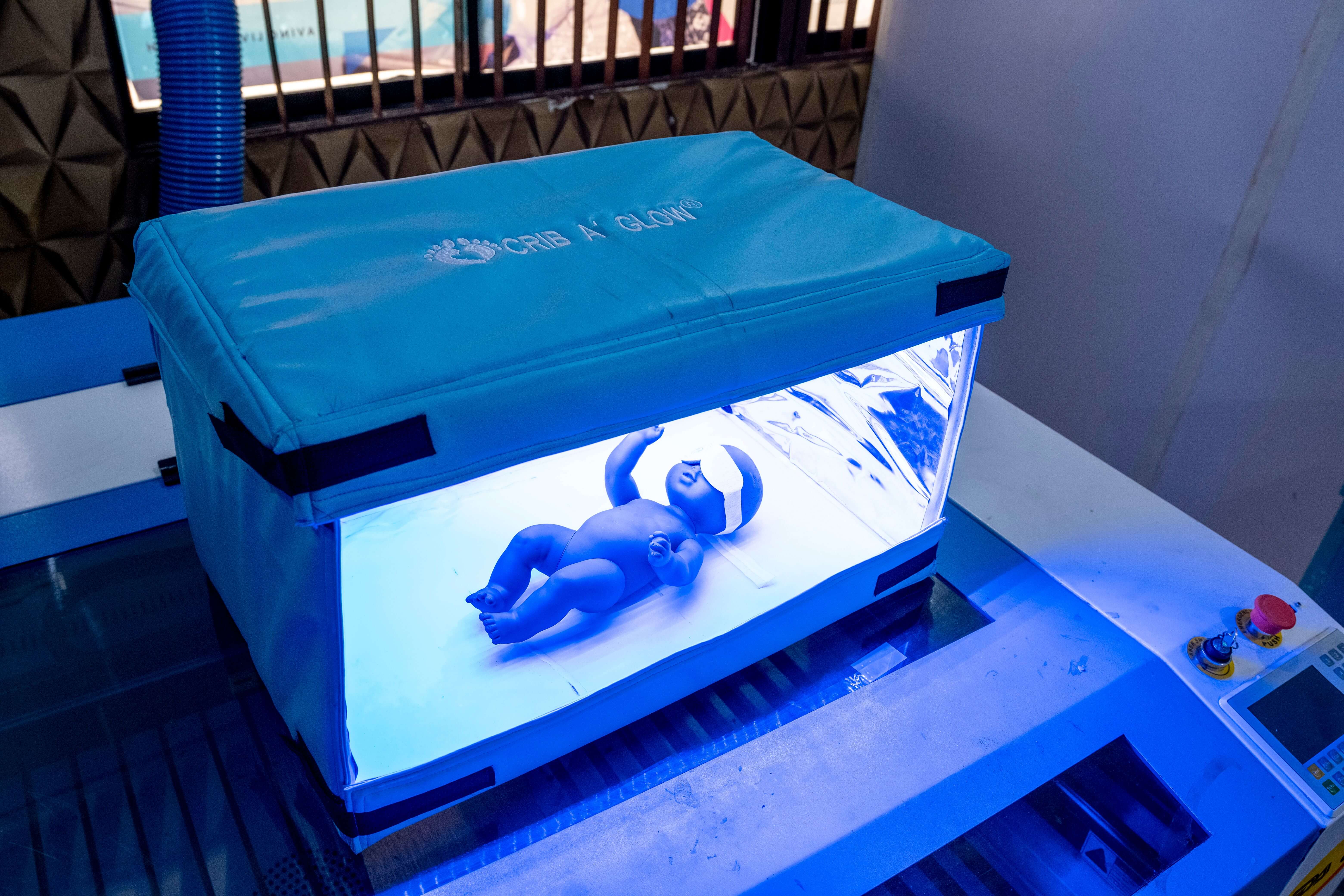Tiny Hearts Technology provides solar-powered neonatal care solutions like the Crib A'Glow for the treatment of jaundice in newborns, targeting healthcare facilities and parents in resource-constrained regions to reduce infant mortality and enhance neonatal healthcare access.
Virtue Oboro and her husband began work on the idea after their son was severely jaundiced after birth, and have since grown the team to include engineers, designers and paediatricians.
Jaundice occurs in newborns when bilirubin - a natural substance made when red blood cells disintegrate - is abnormally high. It’s extremely common, with more than half of newborns suffering from jaundice to some degree. It can be fatal, and can also cause brain damage, cerebral palsy and hearing loss. Jaundice is not, however, considered a high-risk illness in high-income countries because treatment is fairly straightforward: blue light therapy breaks down the bilirubin in an infant’s blood.
However, devices used to treat jaundiced newborns are not designed for under-resourced facilities. They are typically prohibitively expensive, and highly sensitive to electricity fluctuations or outages. As a result, more than 6 million infants worldwide do not receive appropriate treatment, with around 100,000 deaths recorded annually and many more suffering permanent injury.
Driven by the co-founders’ personal experience with their son, Oboro and her team worked to fill this gap in appropriate healthcare technology, creating a phototherapy crib that is specifically designed for under-resourced medical facilities that don’t have access to stable electricity supply.
Crib A’Glow can run on either grid or solar power, uses LED lights and actively monitors the level of bilirubin in the baby’s body. It is completely mobile, and a tenth of the cost of the average phototherapy device used in developed countries. To maximise on energy efficiency, light rays are focused on the baby’s body instead of spreading out over the crib.

“Crib A’glow is an appropriate, affordable and effective solution to a simple but life-threatening problem that more than half of African families will face. It has the potential to change millions of lives and has already saved thousands.”
Virtue Oboro


